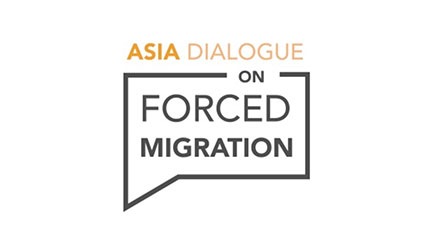1. Blind Trusts
The idea is blind trusts, a method which enables political donations to be made while keeping the identity of the donor secret from the recipient.
It’s interesting because it seeks to overcome the potential for undue influence associated with donations made to political parties.
Those with clearly vested interests in the outcome of government decisions are more willing than ever to make a donation to a party in the ‘hope’ that they will deliver a favourable outcome. There is no doubt that donations are made with an expected return in mind. Prima facie, blind trusts appear to sever any perceived link between donations and government decisions.
The only problem is that donors would remain able to inform donees of their donation – it would be a poor investment if they could not. This would mean that the public would not be informed of who is donating. In this there is the potential for a very corrupt system.
They tried it in the UK where the labour party received funding through blind trusts during their period in opposition from 1992 to 1997.
Read more at SMH, where Andrew Leigh first floated the idea in Australia in 2004.
2. Donations tracking: exposing their true value
The idea is online donations tracking, these are services, both public and private, that allows users to track political donations.
It’s interesting because tracking donations aims to expose donors thereby placing greater scrutiny on donees and the nature of their donations.
For example, if a political party is perceived to have illegitimately favoured a particular company the tracking service can be used to determine if the company has made a donation.
 In somewhat of a contrast to blind trusts, tracking donations seeks to take advantage of an inquisitive and robust media. This of course assumes that such a media exists in the country where the service operates.
In somewhat of a contrast to blind trusts, tracking donations seeks to take advantage of an inquisitive and robust media. This of course assumes that such a media exists in the country where the service operates.
There are issues however in the assertion of a ‘link’ between a donation and the donee. While it is safe to say that many donors expect a return on their investment, simply tracking donations, while useful, does not establish any wrongdoing by any party.
There is of course the risk that hastily formed, incorrect, and potentially defamatory, conclusions could be made and then disseminated. Tracking services appear to be most useful for democratic nations with a free media and strong rule of law but they are by no means a fool proof way of dealing with issues surrounding political donations.
They tried it in the US with the sophisticated fundrace, run by the Huffington Post, and the more activist opensecrets. In Australia we have the bluntly named democracy4sale.
Read more at the above websites – the web is simply full of software companies trying to sell products that track donations.
3. A ban on political donations
The idea is a ban on all donations to political parties. Essentially this means establishing a publicly funded electoral system.
It’s interesting because instead of regulating political donations in an attempt to remove negative perceptions and the potential for corruption, banning donations, on the face of it, removes the issue altogether. The attractiveness of this idea is its simplicity.
To make this effective it would necessarily require the criminalisation of political donations. This would obviously give courts a greater role in the political process – a separate issue in and of itself.
A ban would extinguish the opportunity for cashed up interest groups to make donations in the ‘hope’ of decisions being made in their favour. By creating a level playing field such a ban would certainly ignite the resistance of major political parties.
They tried it in the US, where in 1971 ‘soft’ money donations to national political party committees were banned. This clearly didn’t remove donations altogether but did try to remove somewhat suspicious donations to party organisations.
Read more at SMH on the NSW Iemma government’s floated suggestions earlier this year made in response to a number of high profile scandals involving developers and development approvals in Wollongong.
4. Democracy assistance: When to stop giving?
The idea is what has been termed democracy assistance, which broadly means giving money to developing countries to help them strengthen democratic governance.
It’s interesting because giving to political parties in democratic countries with the expectation that they act in a particular way is frowned upon while giving to an African nation and telling them to run their country the way we think is best is seen as ‘help’.
However removing aid from its ideological and philosophical context (whether religion, modernity or human rights) is unrealistic. More importantly democracy, thus far, seems to work and make everyone a lot better off – something has to be said for promoting it.
They tried it in many countries around the world (click on the links below for more information)
Read more at the Overseas Development Institute and for examples see the World Movement for Democracy.
5. Gifts in kind
The idea is Gifts in Kind, a charity that instead of giving money or providing expertise, arranges for the donation of everyday products.
It’s interesting because while money and expertise are very important often people are in need of products that can make a significant difference to their lives such as clothing, medical supplies or computers.
In 2006 they claim to have received $900 million dollars in donated products and have a network of 150,000 community-based charities both in the US and internationally.
Resonance with the notion of ‘redistribution’ is marked. Companies who donate often have useful things to give which works well for them because it costs them less to give. However it also means that donated funds can be used for other things.
They tried it in the US where Gifts in Kind in the 7th largest charity in that country.
Read more at their site. Or for those with a more cynical, critical inclination, brush up on your Marxist theory.



